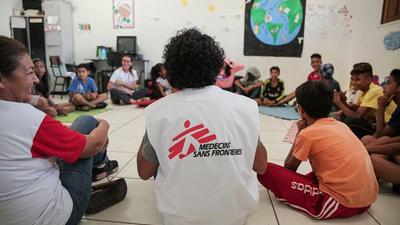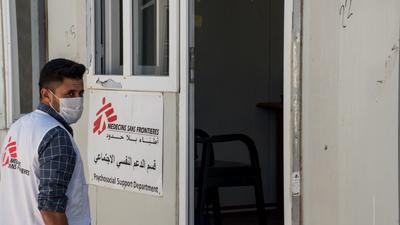MSF handed over its prison psychiatry and HIV/TB activities to the Zimbabwe Prisons and Correctional Services (ZPCS) on Monday 4 December 2017 after over five years of providing quality treatment, care and support to inmates with mental illnesses at the Chikurubi Maximum Security Prison Psychiatric Unit and in eight other prisons in the country.
During this time, along with practical program support including clothing and food for those at the Unit, MSF also trained ZPCS staff to use the World Health Organization’s mental health Gap Action Programme (mhGAP) and the management of HIV, TB and multidrug-resistant tuberculosis (MDR-TB), including infection control.
Coinciding with the handover of the mental health project, after 11 years, and with the rate of HIV and AIDS now in decline, MSF’s HIV and general health program at Epworth Clinic, on Harare’s outskirts, has been transitioned back to the management of nurses and doctors from the Zimbabwe Ministry of Health and Child Care (MoHCC).
While MSF’s mental health and Epworth Clinic programs have drawn to an end, the organisation will continue its projects in Beitbridge, Chipinge, Gutu, Harare, Mutare and Mwenezi supporting the Ministry of Health and Child Care (MoHCC) to provide treatment, care and support to patients with HIV, non-communicable diseases including diabetes, hypertension and asthma, and cervical cancer screening services.
Check our exposure page: https://msf.exposure.co/a-meeting-of-the-minds





